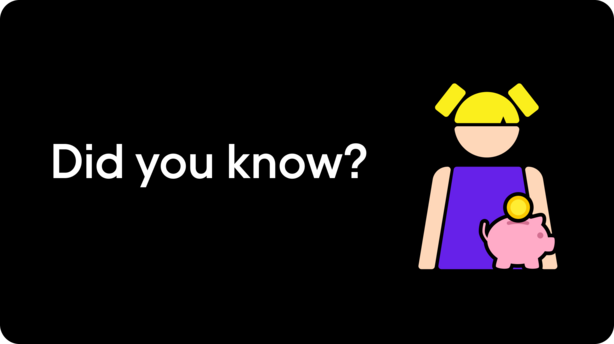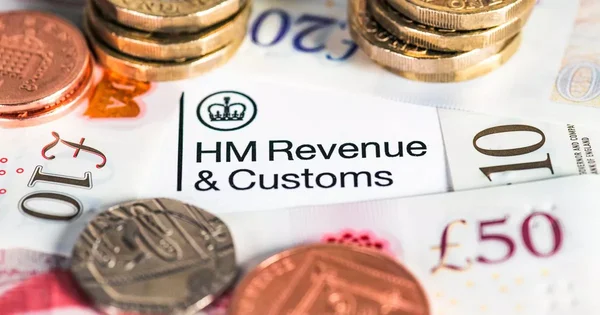What Is the Universal Credit Minimum Income Floor?

Universal Credit, a welfare benefit in the UK, is designed to provide income support to people of working age. Within this system, the Minimum Income Floor (MIF) is a crucial element for self-employed individuals. It essentially assumes a minimum level of earnings that you should be achieving if your business were running smoothly. The MIF affects how much Universal Credit you receive, and it is based on what the government estimates you would earn at the National Minimum Wage based on your type of work and age.
How does the Universal Credit MIF Impacts Self-Assessment? For self-employed individuals, the MIF can significantly affect your self-assessment tax calculations. This assumed income level may not align with your actual earnings, especially if your business is just starting or going through a tough period. As a result, your Universal Credit may be reduced, impacting the overall financial resources you have during the tax year.
Additionally, when completing your self-assessment, the difference between your actual income and the MIF could have implications for your tax liabilities. It’s essential to understand how this discrepancy might affect your tax bill and financial planning.
Effect on Monthly Universal Credit Payments
The MIF can lead to fluctuations in your monthly Universal Credit payments. For example, if you earn less than the MIF in any month, the government still calculates your benefits assuming you earned the MIF amount. This may reduce your benefits, making it tougher to manage your finances.


Importance for New Businesses
New business starters may find the MIF particularly challenging. Since it assumes a minimum income level, it may not reflect the lower income typical in the early stages of a business. This discrepancy requires careful financial planning and may necessitate seeking additional financial support or guidance from a tax advisor.

In 2022, the National Minimum Wage for those over 25 was £8.91 per hour. This rate was part of a structured wage system designed to ensure fair compensation for workers across various age groups and employment statuses. The wage rate for younger workers and apprentices was slightly lower, reflecting different labour market conditions and levels of experience. It is crucial for employers to adhere to these rates to comply with UK labour laws and support workers' livelihoods.National Minimum Wage

80% of self-employed individuals earn less than the Minimum Income Floor (MIF) in their initial year of business. This significant statistic highlights the financial challenges many new entrepreneurs face during the early stages of their ventures. The MIF is a benchmark used by Universal Credit to assess self-employed earnings, based on what someone of similar circumstances would earn at the National Minimum Wage. Minimum Income Floor

Navigating the Minimum Income Floor
Navigating the complexities of the Universal Credit Minimum Income Floor (MIF) requires a thorough understanding of both welfare benefits and taxation. The Pie Tax App can assist you in staying on top of your earnings and expenses, ensuring that your self-assessment is accurate and timely. Additionally, the app provides a seamless way to manage your financial records, helping you avoid common pitfalls that can arise from improper documentation.
The expert tax assistants available on the Pie app can offer tailored advice, helping you minimise the impact of the MIF on your financial situation.
How to Manage Fluctuating Earnings
Fluctuating earnings are a common challenge for the self-employed, making it difficult to predict and manage finances. One effective strategy is to maintain a buffer in your savings account, which acts as a financial safety net. This buffer can help manage periods where your actual income falls below the Minimum Income Floor (MIF), ensuring that you can still cover essential expenses and tax liabilities. Additionally, regularly reviewing and adjusting your budget can help you stay prepared for these fluctuations, allowing you to better allocate resources during leaner months.
Another approach to managing the financial unpredictability of self-employment is to diversify your income streams. By having multiple sources of income, you can better manage the ups and downs of self-employment and reduce the risk of being financially penalised by the MIF. This diversification might include offering different types of services, investing in passive income opportunities, or taking on part-time work to supplement your primary business income.

Universal Credit: Minimum Income Floor Tips

The MIF is based on what the government expects a self-employed person to earn. Familiarise yourself with how it's calculated to avoid surprises.Understand Your Minimum Income Floor (MIF)

Keep detailed records of your earnings and expenses. This ensures you can provide accurate information when reporting your income for Universal Credit assessments.Maintain Accurate Records

Assess your earnings periodically to ensure they align with the MIF. If your earnings consistently fall short, consider strategies to increase your income or adjust your business plan.Regularly Review Your Income

Did You Know?
Self-employed individuals could apply for a MIF suspension if their business was affected by certain extraordinary circumstances, such as the COVID-19 pandemic. This would temporarily ease financial pressure and provide some relief.
Expert Advice on Handling the MIF

Start by recording all your earnings and expenses meticulously. The Pie Tax App is instrumental in doing this efficiently, ensuring accuracy in your financial records. Regularly consult with Expert tax assistants available on the Pie app for insights tailored to your unique situation, helping you navigate the complexities of your self-assessment.

Understanding tax deadlines is crucial when navigating the complexities of the Universal Credit Minimum Income Floor. Adhering to these deadlines ensures that your income is accurately reported and assessed, which is vital for calculating the correct Universal Credit entitlement. Missing tax deadlines can lead to discrepancies in income reporting, potentially resulting in incorrect benefit payments or delays. Understanding Tax Deadlines

Detailed record-keeping is essential when navigating the complexities of the Universal Credit Minimum Income Floor (MIF). By meticulously documenting your earnings and expenses, you can provide accurate and comprehensive information during assessments. This level of detail helps ensure your reported income reflects your actual financial situation, preventing potential discrepancies that could negatively impact your Universal Credit entitlements.Detailed Record-Keeping
Summary
Understanding the Universal Credit Minimum Income Floor and its impact on your self-assessment is crucial for financial planning. The MIF can affect your benefits and tax liabilities, especially if your actual earnings fall below this threshold.
Using tools like the Pie Tax App can help in managing your finances efficiently. Expert advice and detailed record-keeping are key strategies in navigating these challenges.
Frequently Asked Questions
What is the Minimum Income Floor?
The Minimum Income Floor is an assumed income level used by the Universal Credit system to calculate benefits for self-employed individuals.
How does the MIF affect my Universal Credit?
If your actual earnings are below the MIF, your Universal Credit is calculated as if you earned the MIF, potentially reducing your benefits.
Can the MIF be suspended?
If the business cannot operate at full capacity discretion can be used to temporarily suspend the minimum income floor (MIF). Each temporary suspension must be for two assessment periods (Aps) at a time.
How can I manage the impact of the MIF?
Keeping detailed financial records, using tools like the Pie Tax App, and consulting with tax experts can help you manage the impact of the MIF.
Are new businesses affected more by the MIF?
Yes, new businesses often have lower initial earnings, making the MIF particularly challenging for start-ups.











